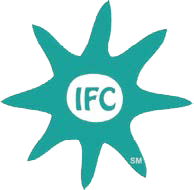Many of you may be old enough to remember when companies took an interest in developing their employees, investing in them to grow and take on new skills based on the company’s management objectives. That nurturing was called “on the job training.” So common was the practice that it became known by a simple acronym: OJT. That kind of training is designed specifically for controlled, well-understood, well-managed environments. If you are taking care of an elderly or disabled loved one, you know caregiving, for the most part, doesn’t work like that.
Nurses and other providers have repeatedly been called out as trainers for caregivers, but the home, where caregiving takes place, is not a clinical environment. Trying to “train” people to do caregiving is like trying to “train” people to do housekeeping — everything depends on the household. What matters most is the result—a well-kept house—not the manner. Caregivers need a flexible, but goal specific system that allows for maximum discretion and self-motivation—call it On the Job Learning, or OJL. At IFC, we achieve that with two rule-based sets of guidelines that frame the caregiving role: “The Seven Principles of Family Caregiving”, and the “Three Duties of Family Caregiving.”
At least the OJT approach acknowledges that family caregivers are an appendage of the health care system—most of them unwitting recruits. And it is true that many important clinical-type skills—wound dressing, medication management, vitals monitoring, etc.—fit the OJT category. But they aren’t at the core of the caregiving function. The most important caregiving capacities are judgment calls and deft maneuvers that avoid catastrophe while trying to maintain equilibrium—things like dealing with difficult family situations, navigating web-like healthcare bureaucracies, dodging financial catastrophe, and endeavoring to protect one’s own health under relentless pressure. Very few of those capacities will be the result of any rigorous formal training. Mostly they will be the result of naked experience, trial and error (or terror), and personal effort.
Caregivers are not helped by the fact that today’s health care system is constantly changing. In fact, health care right now is making a big shift back to its community-based roots. More and more treatment, recovery, and rehabilitation take place in community settings, especially the home. These changes affect everyone in the health care system—patients, caregivers, medical providers, insurers, care facilities, and families. Such constant change is hard on everyone, but especially on family caregivers. The tumult in health care is one reason OJL is necessary. No class can keep pace. It seems the rules and processes are being made up as we go along. Caregivers have to be alert, observant, and willing to engage. They have to reach out for information and support, but also take charge of their own learning. That’s the best approach, the best attitude that can be brought to the job. Those of us who want to help should focus on empowering them to do just that.
-Willetha
